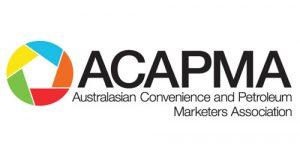 The long-term sustainability of franchise agreements is wholly dependent on both the franchisor and franchisee working harmoniously for the financial and strategic benefit of their respective enterprises, says ACAPMA CEO Mark McKenzie.
The long-term sustainability of franchise agreements is wholly dependent on both the franchisor and franchisee working harmoniously for the financial and strategic benefit of their respective enterprises, says ACAPMA CEO Mark McKenzie.
“It would be fair to say that, in recent times, a degree of tension has been introduced into franchise agreements because of the high-profile wage-underpayment issues that have been identified in our and other industries,” he said.
“The response of some franchisors to this issue appears to have resulted in increased questions being asked of their franchisees, with some franchisees asking whether they are legally obligated to respond to such requests.
“It goes without saying that franchisors have the right to make reasonable requests of franchisees in their quest to ensure that franchisees displaying their brand on the forecourt are complying with the requirements of employment law.
“Such action is in the wider interests of the retail fuel industry by ensuring that franchise businesses not paying correct wages are not allowed to continue to enjoy an unlawful competitive advantage over the majority of franchisees that are doing the right thing.”
ACAPMA has, however, received numerous inquiries from franchisees in recent months questioning whether the actions that are being taken are unreasonable.
“We suggest that any franchisees who are concerned about the nature of any requests that are being made should make direct contact with their franchisor in the first instance,” Mr McKenzie said. “If this action fails to deliver a satisfactory result, the franchisee is entitled to take full advantage of the dispute-resolution procedure that exists under the Australian oil-code regulation.”
The 2017 regulation operates under the umbrella of Australian competition and consumer law. It sets out, among other things, the key requirements for the operation of fuel-reseller agreements in the Australian market.
“Importantly, the oil-code regulation provides a mechanism for franchisees to resolve disputes via mediation without the need for more costly and often stressful litigation via the courts,” Mr McKenzie said.
If the parties agree to proceed to an oil-code mediation, which can be initiated by either party, modest costs are typically shared between the parties.
An overview of the regulation’s operation for fuel resellers is available at www.accc.gov.au/publications/an-overview-of-the-oilcode-for-fuel-resellers.
Further information about the dispute-resolution process can be secured confidentially (and free of charge) by contacting the Oilcode Dispute Resolution Adviser on 1800 476 706 or by sending an email to adviser@oilcode.com.au.
This is an edited version of an article originally circulated by ACAPMA on June 1, 2017.



